Tina-Maria Feyrer
Tina-Maria Feyrer is an Austrian-Italian director and avant-garde filmmaker. She studied Russian,
Philosophy and Theatre & Film Studies at the University of Vienna and at the Lomonosov University in Moscow. After completing her doctoral thesis on the relationship of language and thinking, she worked as director of production and assistant director alongside such theatre directors as Alexander Kubelka and Paulus Manker, as well as with dance companies including the Mariinsky Ballet, the Bolshoi Theatre and the Boris Eifman Ballet. In 2009 Tina Feyrer founded the artist collective h e r r m a u s e r. Feyrer’s debut as a film director, the surrealist movie “Night Sea Journey” (2016 – 62 mins.), has been nominated at festivals in Miami, Los Angeles, Chicago, Hong Kong, Lisbon and Milan and has received several awards, including for Best Director and Best Cinematography.
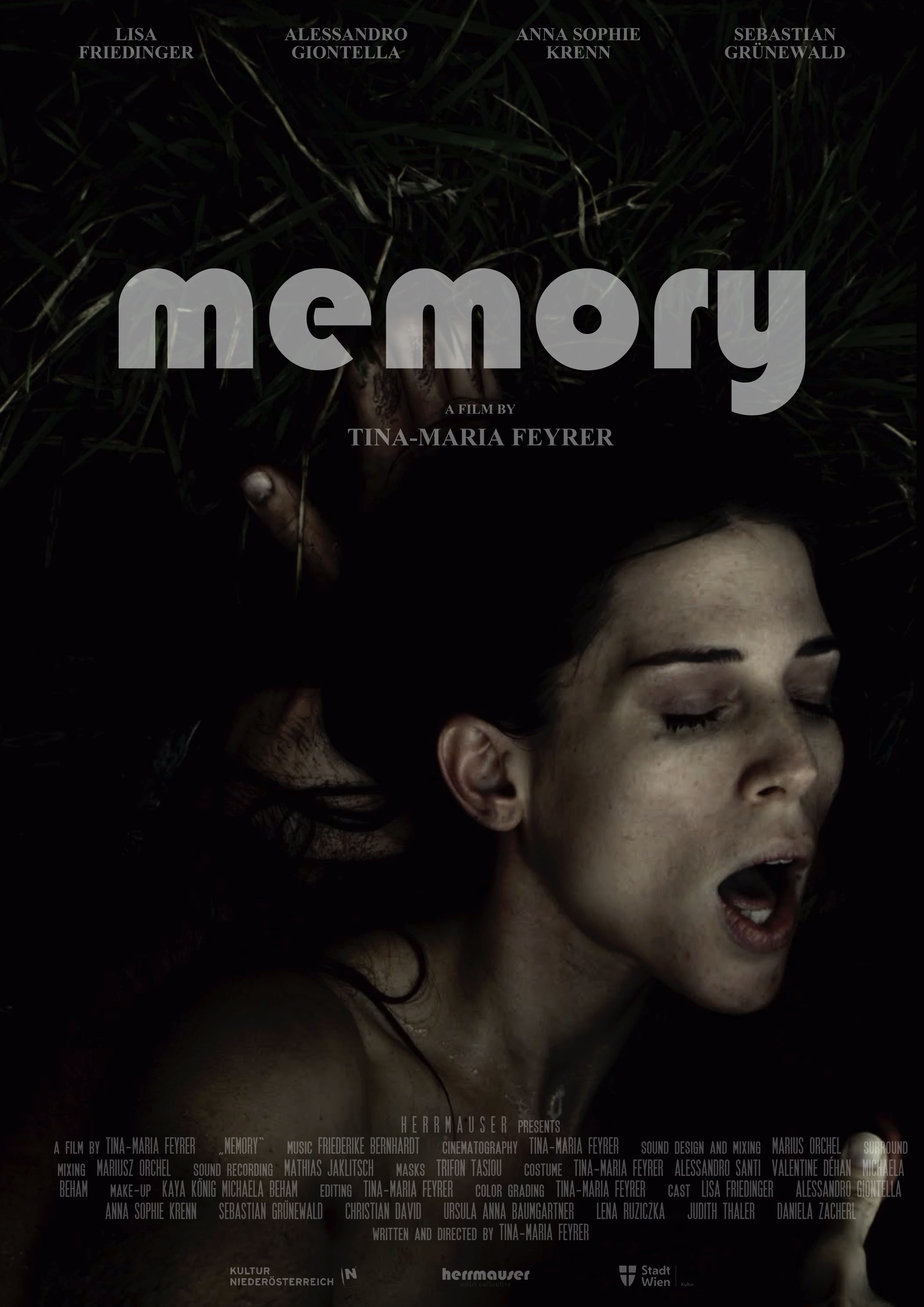
Philosophy and Theatre & Film Studies at the University of Vienna and at the Lomonosov University in Moscow. After completing her doctoral thesis on the relationship of language and thinking, she worked as director of production and assistant director alongside such theatre directors as Alexander Kubelka and Paulus Manker, as well as with dance companies including the Mariinsky Ballet, the Bolshoi Theatre and the Boris Eifman Ballet. In 2009 Tina Feyrer founded the artist collective h e r r m a u s e r. Feyrer’s debut as a film director, the surrealist movie “Night Sea Journey” (2016 – 62 mins.), has been nominated at festivals in Miami, Los Angeles, Chicago, Hong Kong, Lisbon and Milan and has received several awards, including for Best Director and Best Cinematography.

Your project has been entered in our festival. What is your project about?
The film portrays four days in the life of four filmmakers participating in a reality TV show. They are engaged in a Short Film competition, with the winner to receive full financing for their first feature film. The story begins on the first day of the last round of the competition. The four finalists are announced, and together they move into a fully furnished villa, with the knowledge that they are being watched by live cameras. This footage is being broadcast and also shown on a TV screen in the living room. The house is located next to a mysterious forest, shrouded in myths and legends, on the eastern side of Austria – the Waldviertel. Enveloped by wetlands and an impenetrable swamp, the forest has for generations been the subject of eerie and magical stories. For the locals, the swamp is an intermediate world between water and land. They believe that the elements, earth and water all merge here into a semi-dark twilight, a gate to the other side. It is the candidates’ task now to make a short film about their time at the villa. As we witness their film stories developing, we begin to notice that they seem to be portraying different realities. Furthermore, the live cam images reflected on the TV screen in the living room seem to manipulate the reality of what is actually happening. Disconcertingly, after a
short time, the world of the screen gradually becomes the real world for the viewer. Reality itself starts to orientate itself around the broadcast image.
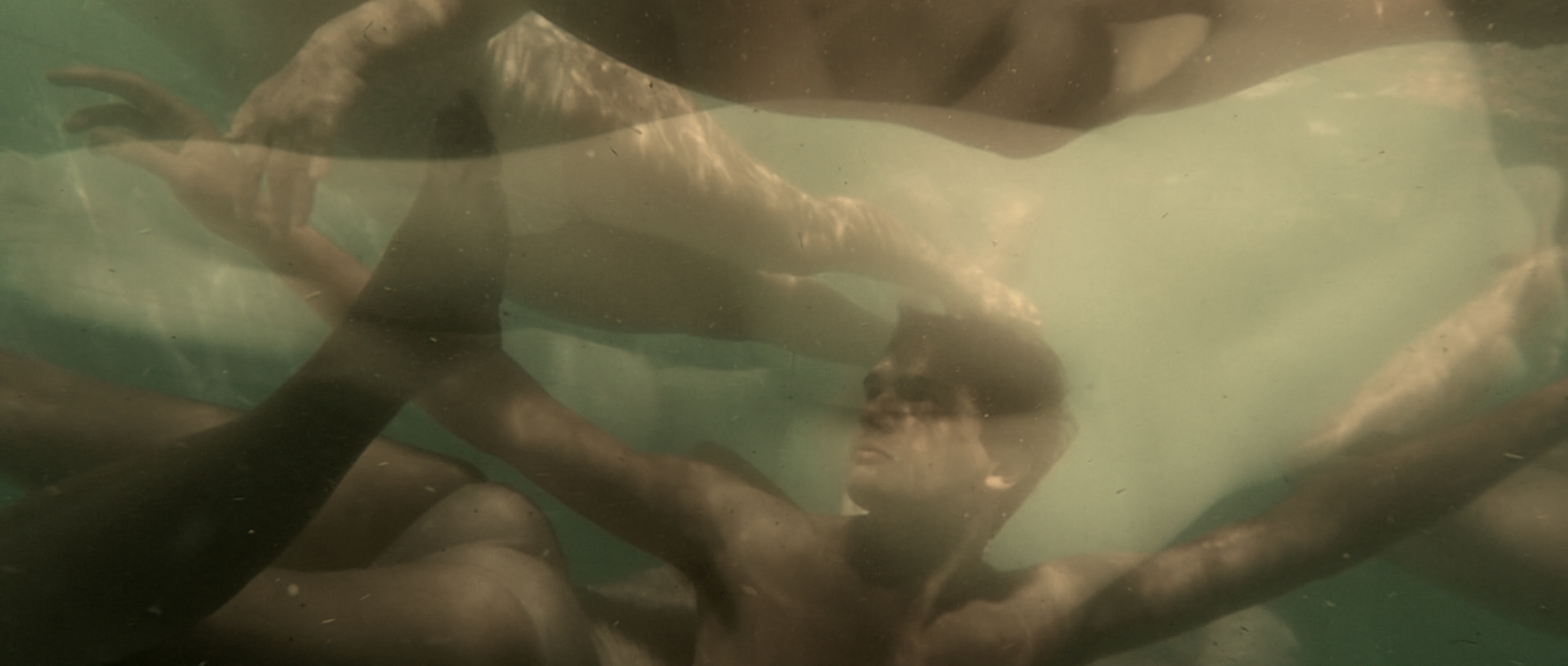
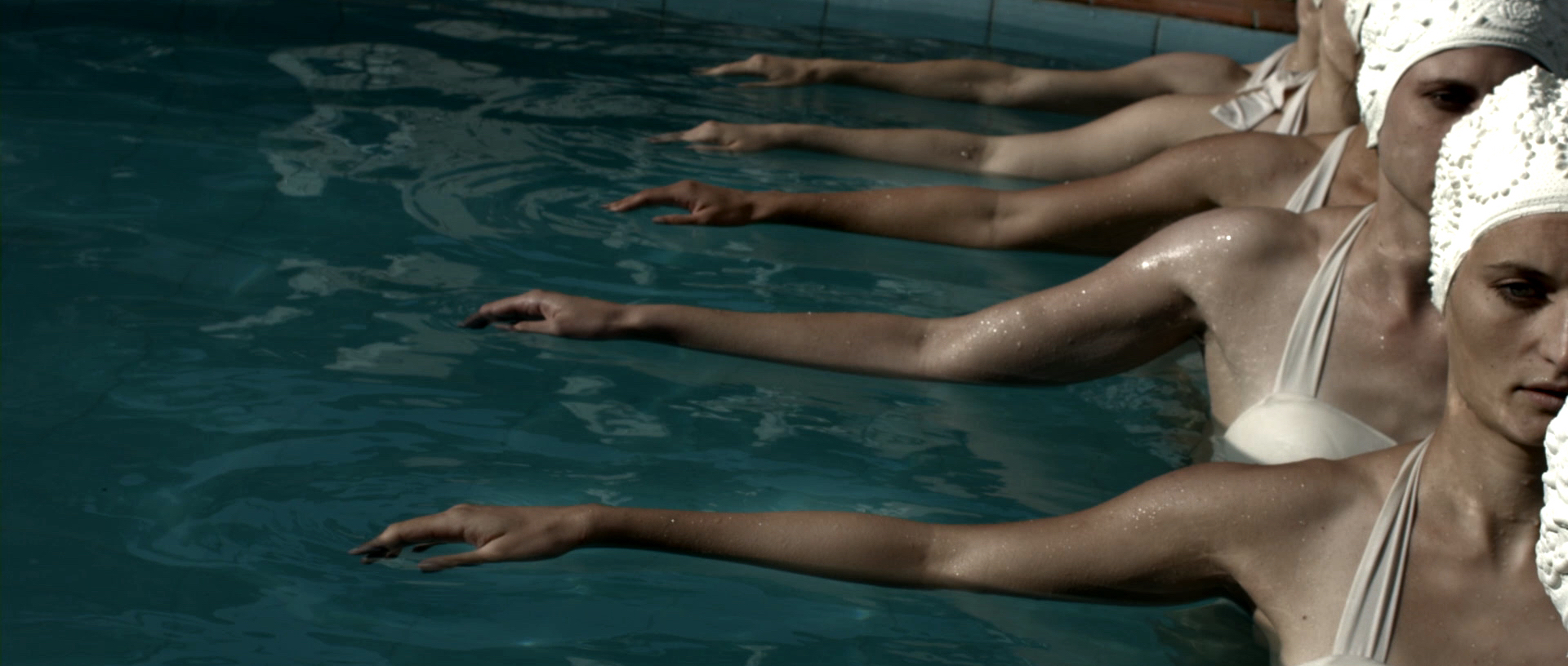
What are your ambitions with your project?
I don’t start with an objective when making films; that is, I have no objective directed towards the outside. Otherwise, the artistic work would become an object of consumption, and art shouldn’t become that.
Tell us something about your shooting. What has pleasantly surprised you?
The location where MEMORY was shot, this mystical forest, actually exists: this place and the stories surrounding it have not been made up. And the area’s very special atmosphere strongly influenced filming; there was usually a very concentrated, you could even say contemplative, mood on the set. We had the feeling that the boundaries of the real were in fact beginning to blur.
At which audience group is your film targeted?
I think there are many viewers who feel repulsed by MEMORY. It isn’t a film that presents itself to the viewer, that opens itself up willingly; you have to become silent, let your mind rest, open up yourself. It is a film that forces the viewer into the moment, which is something that many people find difficult – staying in the moment without looking at it from the outside. I too often find that difficult.
How would you describe your work? What characterises your film?
The exploration of the dreamlike and the unconscious is usually a central element in my work. Film makes it possible to create a world of our own that is not simply an image of reality, but one in which the imagined becomes something tangible that can be experienced. In life we often have the feeling that the past is no less real than the present, or that inner processes are no less significant and real than what is experienced on the outside; that there is not only one reality, that causality does not always apply, that there exists chance and chaos. Film can condense this or present it in isolation and thus intentionally provoke a debate – on very different levels... I think that my films have a tendency to deny the viewer any conceptual knowledge, so ultimately there can be no reason-based understanding of my works. Anyone who goes to see one of my films with this expectation is likely to be frustrated and disappointed. This also very much applies to MEMORY: the film can only unfold its effect if you abandon the need for narration and meaningfulness in the traditional sense.
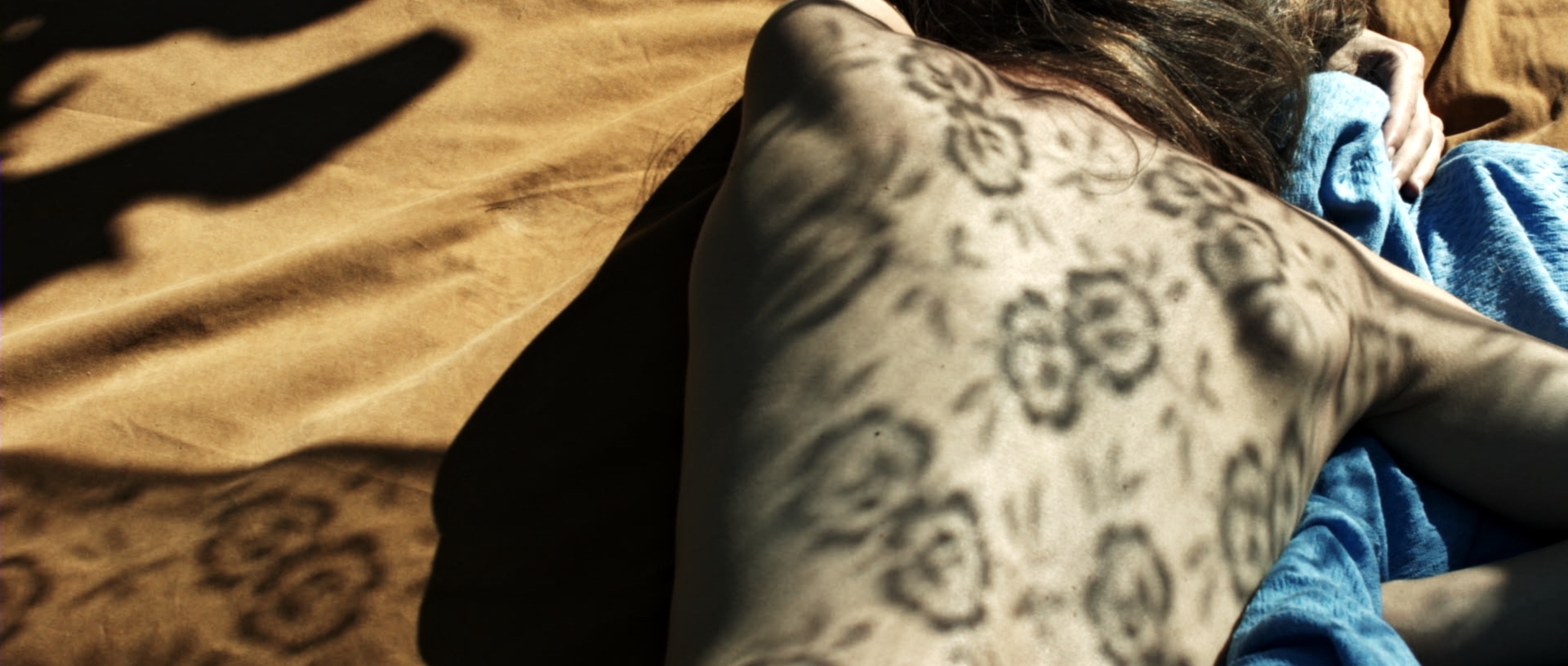
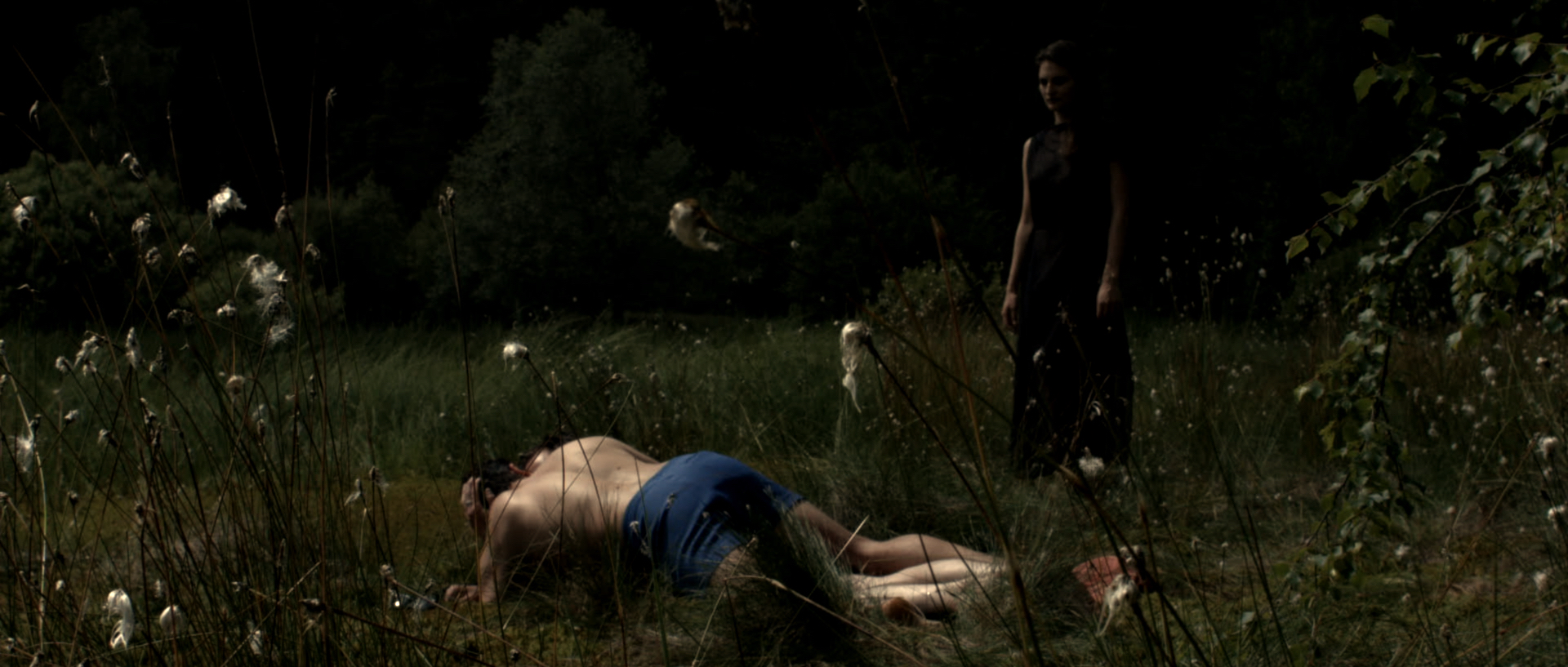
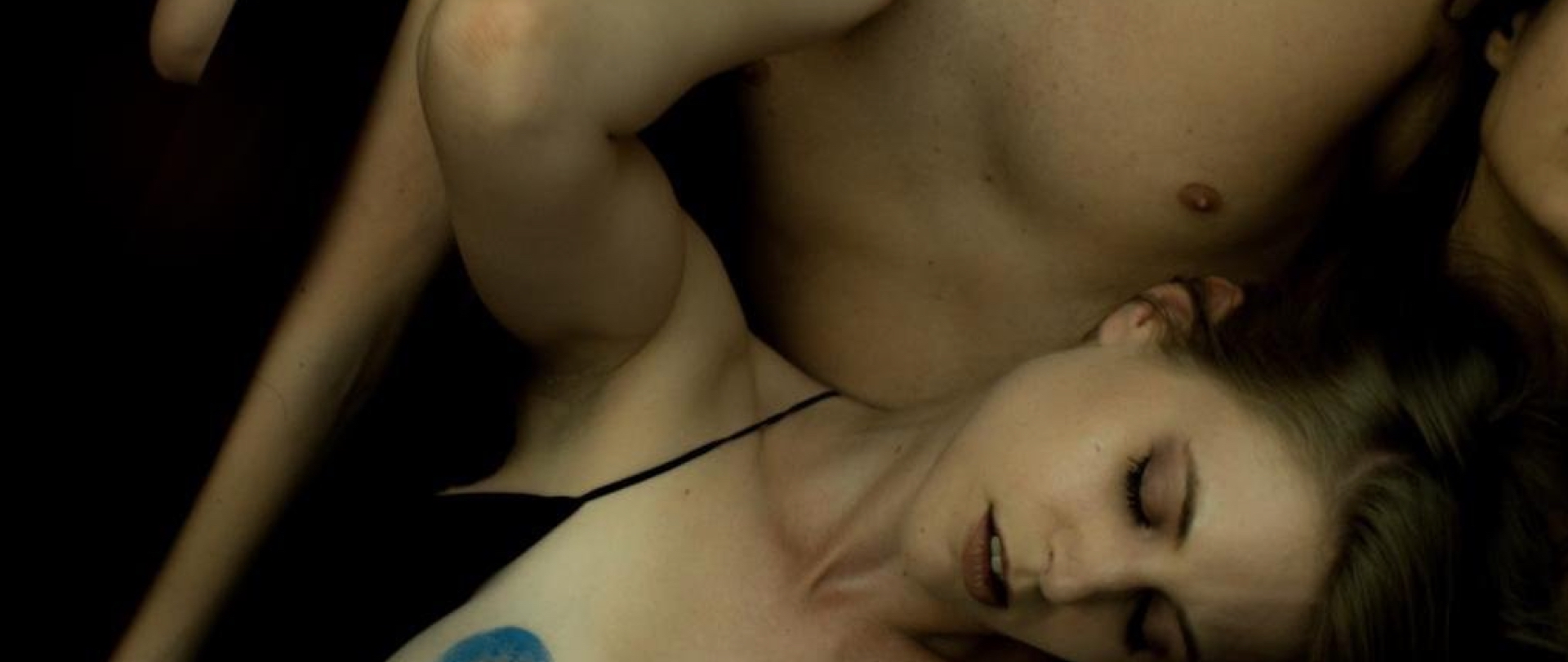
Why did you decide to become a filmmaker?
To be honest, this was not a decision, but rather a matter of chance. I come from a theatre background, which is where I worked for a long time. I was always interested in film, but when I began my studies, there were basically only two options: analogue work with film, which I couldn’t afford, or filming with video cameras, whose aesthetics however didn’t in any way correspond to my inner images. A kind of cinematic look only became possible with the advent of DSLR cameras. Even then, I originally intended to limit myself to directing. But, when my camerawoman fell ill, I had to start shooting the first footage for a film project myself... and that was that... I discovered that the camera enabled me to see the world differently: when I look at things through the camera, I feel removed from temporality, everything seems to stand still, for a
while time ceases to exist...
Who is your role model?
There are and have been so many great filmmakers and directors. For me, Tarkovsky will always be one of the most important, with his view of the world that is then reinterpreted through this view and thus permits the viewer to recognise beauty even where it would otherwise remain hidden from us. Trier too possesses this view. But I also feel strongly connected to Bergmann, with his exploration of the unconscious, of dreams and reality, and his cinematic aesthetic. I love Rivette and Lynch, who allow us to suspect another reality behind things... Bunuel’s recognition of the surreal in the everyday... The suggestive power of empty spaces and interspaces, with which Godard allows the viewer to sense what is not being said...
What are your favourite movies? Why?
That’s another difficult question. They change too, of course. But, over the years, the following films have definitely not lost their importance for me: Zerkalo [Mirror], Donnie Darko, La Piscine, La Notte, Theorem, Twin Peaks: Fire Walk with Me, Persona, etc.
Where do you look for inspiration for your films?
I think inspiration is everywhere: in nature, in art, in looking at a picture, in reading a text, in observing people, in talking with friends, in listening, in remembering, in dreaming... Life is often much more absurd, bizarre and unpredictable than a film could ever make us believe.
Which topics interest you the most?
The inexplicable, the incomprehensible, the dreamlike... transience and loss. The
examination of time in general, of space and causality... Art, and film in particular, are a
way of approaching these themes.
What do you consider most important about filming?
That is something very individual. For me, it is the very personal work with the actor on the one hand, then with the camera on the other – and the process of realisation that, ideally, materialises for everyone involved.
Which do you consider to be the best film shooting technique?
I do not think that “a best shooting technique” exists. I can only speak for myself; I often find that, even if I start from far away, I always end up very close. This creates a very special intimacy with the actor – for me as a cameraman and later for the viewer: a kind of voyeuristic vision of the inside of the person.
What reactions has your film provoked (from audiences, film critics, friends and family)?
My works are mostly films that polarise rather than appeal to the general taste. They are not easily accessible and do not usually open up to conceptual thinking. This is for some viewers an obstacle, while others find it challenging: they are confronted with questions through the film in ways that allow them to reconsider existing answers and find new ones. The questions themselves are not new: they are questions that have always preoccupied people and always will. It is the way of confronting these questions that can be different and new and, in this way, will sometimes lead to a shift in perception.
What plans do you have for your future filmmaking career?
I have just started work on a new feature film project. The first part of shooting will begin in summer. And I have been working for two years with the Austrian author Michael Stavarič on the experimental film series REST IN POETRY. The centre and pivot for these film- poems are readings for the dead by contemporary authors. The locations, which change from episode to episode, are cemeteries that – thanks to their special atmosphere and architecture – are also as it were protagonists in the films.
The film portrays four days in the life of four filmmakers participating in a reality TV show. They are engaged in a Short Film competition, with the winner to receive full financing for their first feature film. The story begins on the first day of the last round of the competition. The four finalists are announced, and together they move into a fully furnished villa, with the knowledge that they are being watched by live cameras. This footage is being broadcast and also shown on a TV screen in the living room. The house is located next to a mysterious forest, shrouded in myths and legends, on the eastern side of Austria – the Waldviertel. Enveloped by wetlands and an impenetrable swamp, the forest has for generations been the subject of eerie and magical stories. For the locals, the swamp is an intermediate world between water and land. They believe that the elements, earth and water all merge here into a semi-dark twilight, a gate to the other side. It is the candidates’ task now to make a short film about their time at the villa. As we witness their film stories developing, we begin to notice that they seem to be portraying different realities. Furthermore, the live cam images reflected on the TV screen in the living room seem to manipulate the reality of what is actually happening. Disconcertingly, after a
short time, the world of the screen gradually becomes the real world for the viewer. Reality itself starts to orientate itself around the broadcast image.


What are your ambitions with your project?
I don’t start with an objective when making films; that is, I have no objective directed towards the outside. Otherwise, the artistic work would become an object of consumption, and art shouldn’t become that.
Tell us something about your shooting. What has pleasantly surprised you?
The location where MEMORY was shot, this mystical forest, actually exists: this place and the stories surrounding it have not been made up. And the area’s very special atmosphere strongly influenced filming; there was usually a very concentrated, you could even say contemplative, mood on the set. We had the feeling that the boundaries of the real were in fact beginning to blur.
At which audience group is your film targeted?
I think there are many viewers who feel repulsed by MEMORY. It isn’t a film that presents itself to the viewer, that opens itself up willingly; you have to become silent, let your mind rest, open up yourself. It is a film that forces the viewer into the moment, which is something that many people find difficult – staying in the moment without looking at it from the outside. I too often find that difficult.
How would you describe your work? What characterises your film?
The exploration of the dreamlike and the unconscious is usually a central element in my work. Film makes it possible to create a world of our own that is not simply an image of reality, but one in which the imagined becomes something tangible that can be experienced. In life we often have the feeling that the past is no less real than the present, or that inner processes are no less significant and real than what is experienced on the outside; that there is not only one reality, that causality does not always apply, that there exists chance and chaos. Film can condense this or present it in isolation and thus intentionally provoke a debate – on very different levels... I think that my films have a tendency to deny the viewer any conceptual knowledge, so ultimately there can be no reason-based understanding of my works. Anyone who goes to see one of my films with this expectation is likely to be frustrated and disappointed. This also very much applies to MEMORY: the film can only unfold its effect if you abandon the need for narration and meaningfulness in the traditional sense.



Why did you decide to become a filmmaker?
To be honest, this was not a decision, but rather a matter of chance. I come from a theatre background, which is where I worked for a long time. I was always interested in film, but when I began my studies, there were basically only two options: analogue work with film, which I couldn’t afford, or filming with video cameras, whose aesthetics however didn’t in any way correspond to my inner images. A kind of cinematic look only became possible with the advent of DSLR cameras. Even then, I originally intended to limit myself to directing. But, when my camerawoman fell ill, I had to start shooting the first footage for a film project myself... and that was that... I discovered that the camera enabled me to see the world differently: when I look at things through the camera, I feel removed from temporality, everything seems to stand still, for a
while time ceases to exist...
Who is your role model?
There are and have been so many great filmmakers and directors. For me, Tarkovsky will always be one of the most important, with his view of the world that is then reinterpreted through this view and thus permits the viewer to recognise beauty even where it would otherwise remain hidden from us. Trier too possesses this view. But I also feel strongly connected to Bergmann, with his exploration of the unconscious, of dreams and reality, and his cinematic aesthetic. I love Rivette and Lynch, who allow us to suspect another reality behind things... Bunuel’s recognition of the surreal in the everyday... The suggestive power of empty spaces and interspaces, with which Godard allows the viewer to sense what is not being said...
What are your favourite movies? Why?
That’s another difficult question. They change too, of course. But, over the years, the following films have definitely not lost their importance for me: Zerkalo [Mirror], Donnie Darko, La Piscine, La Notte, Theorem, Twin Peaks: Fire Walk with Me, Persona, etc.
Where do you look for inspiration for your films?
I think inspiration is everywhere: in nature, in art, in looking at a picture, in reading a text, in observing people, in talking with friends, in listening, in remembering, in dreaming... Life is often much more absurd, bizarre and unpredictable than a film could ever make us believe.
Which topics interest you the most?
The inexplicable, the incomprehensible, the dreamlike... transience and loss. The
examination of time in general, of space and causality... Art, and film in particular, are a
way of approaching these themes.
What do you consider most important about filming?
That is something very individual. For me, it is the very personal work with the actor on the one hand, then with the camera on the other – and the process of realisation that, ideally, materialises for everyone involved.
Which do you consider to be the best film shooting technique?
I do not think that “a best shooting technique” exists. I can only speak for myself; I often find that, even if I start from far away, I always end up very close. This creates a very special intimacy with the actor – for me as a cameraman and later for the viewer: a kind of voyeuristic vision of the inside of the person.
What reactions has your film provoked (from audiences, film critics, friends and family)?
My works are mostly films that polarise rather than appeal to the general taste. They are not easily accessible and do not usually open up to conceptual thinking. This is for some viewers an obstacle, while others find it challenging: they are confronted with questions through the film in ways that allow them to reconsider existing answers and find new ones. The questions themselves are not new: they are questions that have always preoccupied people and always will. It is the way of confronting these questions that can be different and new and, in this way, will sometimes lead to a shift in perception.
What plans do you have for your future filmmaking career?
I have just started work on a new feature film project. The first part of shooting will begin in summer. And I have been working for two years with the Austrian author Michael Stavarič on the experimental film series REST IN POETRY. The centre and pivot for these film- poems are readings for the dead by contemporary authors. The locations, which change from episode to episode, are cemeteries that – thanks to their special atmosphere and architecture – are also as it were protagonists in the films.
